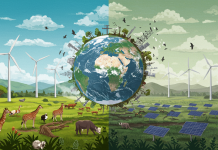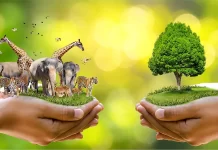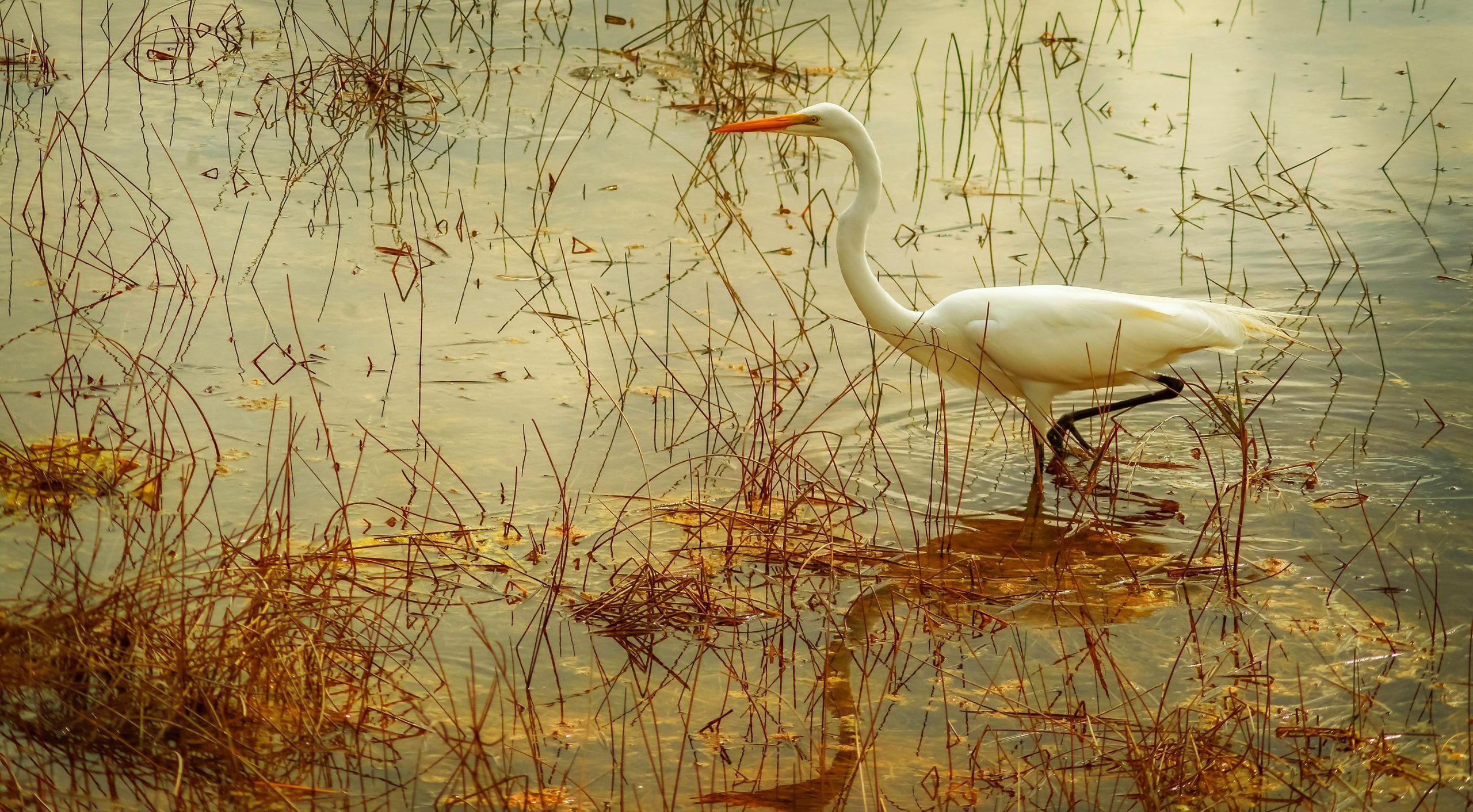Wetlands may not get much attention, but they’re vital for supporting life on Earth. These waterlogged regions, including marshes, swamps, and bogs, are important for ecological stability. These environments support a wide variety of plants and animals. Recognizing the significance of wetlands is important for understanding their contribution to the overall health of our environment.
What are wetlands?
Wetlands are areas of land where the ground is either permanently or seasonally saturated with water. They can include various types of ecosystems, like marshes, swamps, and bogs. Wetlands play crucial roles in supporting diverse plant and animal life, providing habitat for many species, and offering important ecological functions such as water filtration, flood control, and carbon sequestration. Some wetland regions in Nigeria include the Hadejia-Nguru Wetlands in northeastern Nigeria, the Omo Forest Reserve in southwestern Nigeria, the Lake Chad Basin, and the Lekki Conservation Centre in Lagos State.
Wetlands serve as important locations for biodiversity, supporting a variety of flora (referring to all the plant life or vegetation in this region) and fauna (encompassing all the animal life in this region) that have specifically adapted to the wet conditions. The presence of plentiful water and nutrient-rich soils creates the perfect environment for a diverse range of living beings. From amphibians and water birds to a wide array of plant species, wetlands provide a haven for numerous organisms, making a significant contribution to the overall biological richness of our planet.
Ecological Functions of Wetlands?
- Water Filtration and Quality: Wetlands are essential for the provision of water purification services as they act as natural filters, effectively eliminating pollutants, sediments, and excess nutrients from water. Through the use of vegetation and soils as sponges, wetlands can absorb and trap harmful substances, preventing them from reaching downstream water bodies. This crucial role not only helps protect aquatic ecosystems but also ensures the availability of clean water for human communities.
- Flood Mitigation and Resilience: Wetlands are essential in reducing the impact of floods on the environment. During times of intense rain or strong storms, wetlands are crucial in absorbing and retaining excess water, thus reducing the risk of flooding in nearby areas. This particular function of wetlands becomes even more important in the face of climate change as the frequency and intensity of these events increase. As a natural defence against floods, wetlands play a significant role in strengthening the resilience of ecosystems and communities.
- Carbon retention:The carbon cycle on a global scale is significantly impacted by wetlands. Due to the presence of waterlogged conditions, the decomposition of organic matter is slowed down, leading to the storage of carbon in wetland soil. This vital process, known as carbon sequestration or retention, plays a crucial role in mitigating the effects of climate change by offsetting the release of greenhouse gases into the atmosphere. As a result, protecting and restoring wetlands should be a top priority in addressing climate change.
- Sustainable Livelihoods: Throughout history, wetlands have been a source of sustenance for human communities, providing a variety of resources. Wetland resources such as fish, waterfowl, and plants have played important roles in traditional activities like fishing and farming. It is important to find a balance between human needs and wetland preservation to maintain the sustainable use of these ecosystems, safeguarding their ecological functions and supporting the livelihoods of local communities.
The preservation of wetlands is crucial for maintaining the ecological balance of the Earth and ensuring essential benefits for both the environment and human society. It is essential to prioritize the conservation and restoration of these areas and recognize their importance. By safeguarding wetlands, we not only protect biodiversity but also make a valuable contribution to the long-term sustainability of our planet and the well-being of future generations.
















Youre so cool! I dont suppose Ive learn anything like this before. So nice to seek out somebody with some authentic thoughts on this subject. realy thank you for starting this up. this web site is one thing that is wanted on the internet, someone with just a little originality. useful job for bringing one thing new to the internet!
Hello, i think that i saw you visited my web site so i got here to “go back the favor”.I’m attempting to to find things to enhance my site!I suppose its good enough to use some of your concepts!!
I always was concerned in this subject and still am, thankyou for posting.
I’m not sure where you’re getting your information, but good topic. I needs to spend some time learning much more or understanding more. Thanks for magnificent information I was looking for this information for my mission.
Some truly interesting points you have written.Helped me a lot, just what I was searching for : D.
Thank you for sharing superb informations. Your web-site is very cool. I’m impressed by the details that you?¦ve on this web site. It reveals how nicely you understand this subject. Bookmarked this website page, will come back for extra articles. You, my friend, ROCK! I found simply the information I already searched all over the place and just could not come across. What an ideal website.
Today, I went to the beach front with my kids. I found a sea shell and gave it to my 4 year old daughter and said “You can hear the ocean if you put this to your ear.” She placed the shell to her ear and screamed. There was a hermit crab inside and it pinched her ear. She never wants to go back! LoL I know this is completely off topic but I had to tell someone!
excellent post, very informative. I’m wondering why the opposite experts of this sector don’t realize this. You should proceed your writing. I am sure, you’ve a huge readers’ base already!